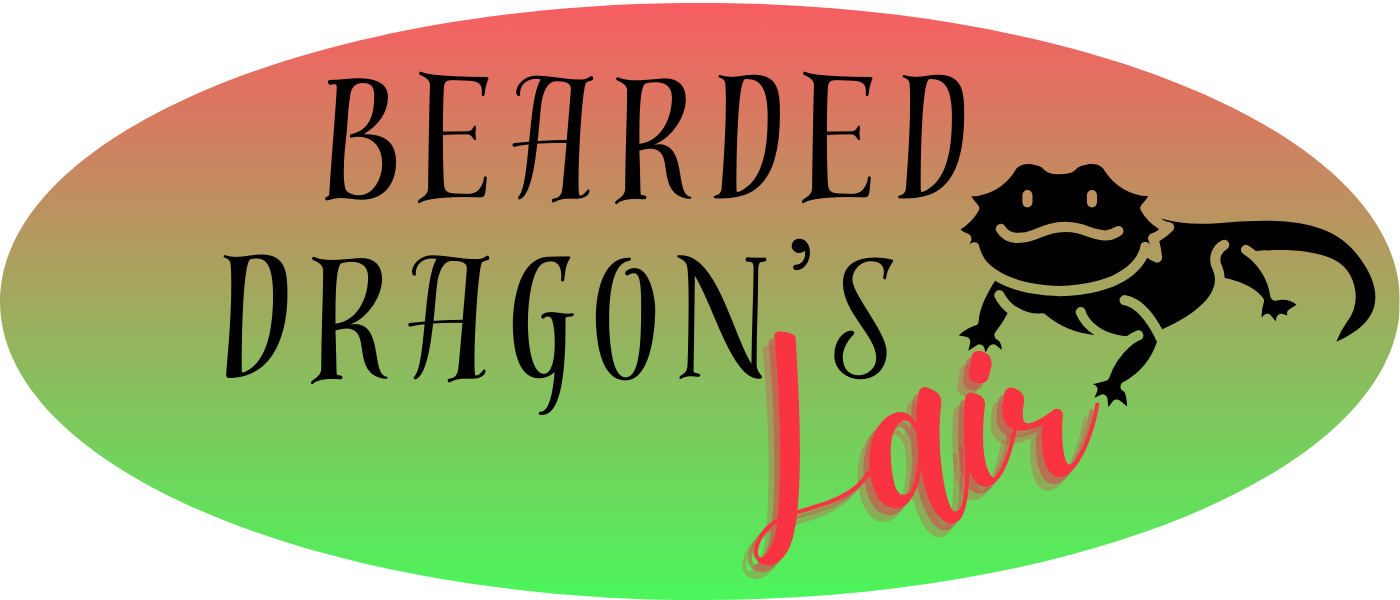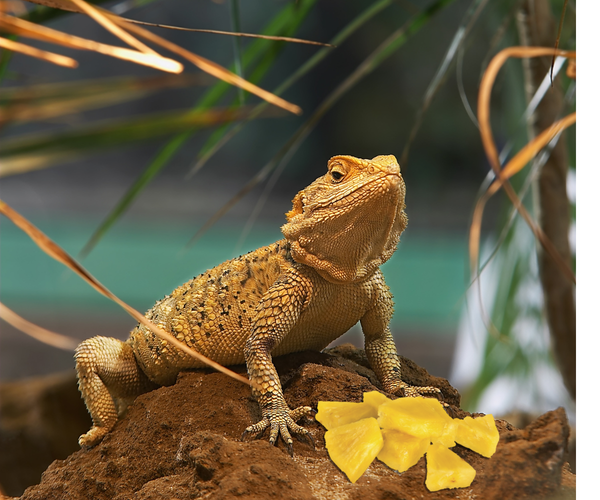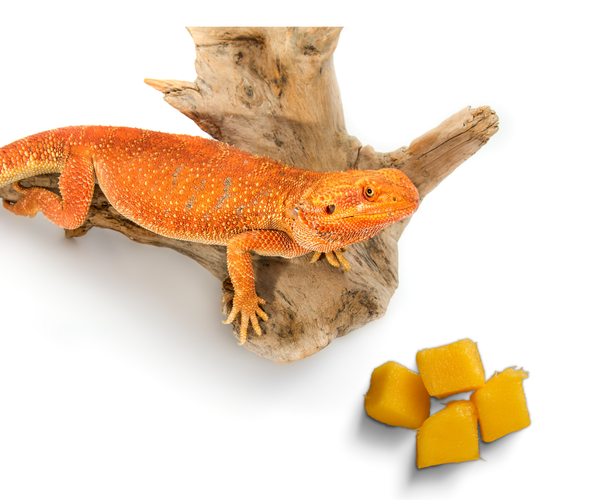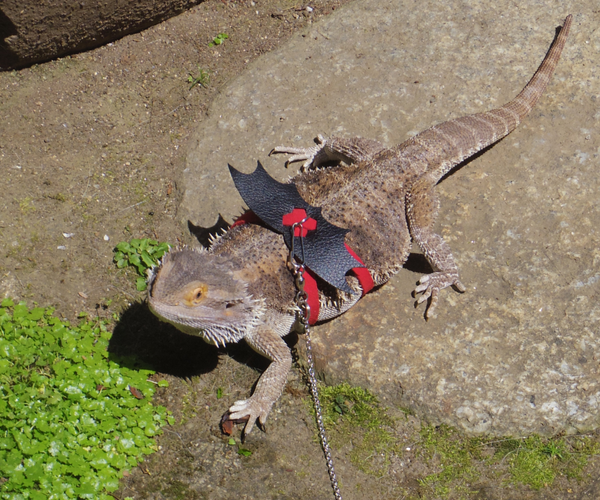Can Bearded Dragons Eat Blueberries?
Blueberries can be a healthy treat for bearded dragons when given in moderation.
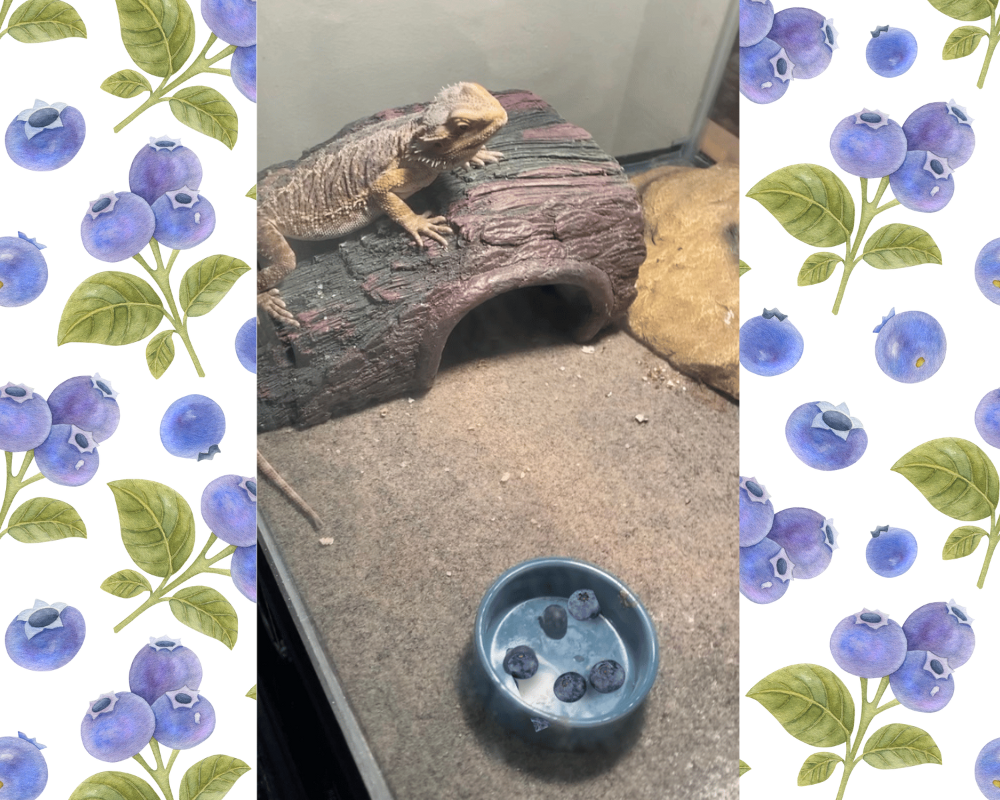
As omnivores, bearded dragons require a balanced diet of vegetables, fruits, and insects. Pet owners often wonder about the variety of fruits they can safely offer to their bearded dragons, and blueberries frequently come up in this discussion. In this article, we discuss whether blueberries are a safe and nutritious option for bearded dragons.
Key Takeaways:
- Blueberries can be a healthy treat for bearded dragons when given in moderation.
- It's important to understand the nutritional benefits and potential risks of feeding blueberries to bearded dragons.
- Proper preparation and serving size are crucial to ensure the safety and health of your bearded dragon.
Nutritional Profile of Blueberries
Blueberries are a powerhouse of nutrients, packed with vitamins, antioxidants, and fiber. They are low in calories and have a high water content, which can be beneficial for hydration. For bearded dragons, the vitamins present in blueberries, such as vitamin C and vitamin K, can support their immune system and bone health. However, it's essential to consider the sugar content in blueberries, which, while natural, should be consumed by bearded dragons in limited quantities.
Serving Size and Frequency
When it comes to feeding blueberries to bearded dragons, moderation is key. Due to their sugar content, blueberries should be treated as an occasional snack rather than a staple in their diet. A good rule of thumb is to offer blueberries once or twice a week, with the serving size being no more than two to three small blueberries per serving. This helps prevent potential health issues such as obesity and nutritional imbalances.
Potential Health Benefits
Incorporating blueberries into your bearded dragon's diet can offer several health benefits. The antioxidants in blueberries can help combat free radicals, potentially reducing the risk of certain diseases. The fiber content aids in digestion, helping to prevent constipation, a common issue in bearded dragons. Additionally, the vitamins found in blueberries support overall health, contributing to a stronger immune system and better vision.
Risks to Consider
While blueberries can be a nutritious treat, there are risks associated with feeding them to bearded dragons. The high sugar content can lead to obesity and dental problems if consumed in excess. Blueberries also contain oxalates, which can bind to calcium and lead to deficiencies or metabolic bone disease if not balanced with other calcium-rich foods. It's crucial to be aware of these risks and feed blueberries in moderation.
Preparing Blueberries for Your Bearded Dragon
Proper preparation of blueberries is essential for the safety of your bearded dragon. Always wash the blueberries thoroughly to remove any pesticides or contaminants. Organic blueberries are a safer choice to minimize exposure to harmful chemicals. It's also important to cut the blueberries into small, manageable pieces to prevent choking and ensure easy digestion.
The Importance of a Varied Diet
A varied diet is vital for the health of your bearded dragon. While blueberries can be a part of this diet, they should not replace other crucial components such as leafy greens, vegetables, and insects. Offering a wide range of foods ensures that your bearded dragon receives all the necessary nutrients and minimizes the risk of dietary deficiencies.
How to Introduce Blueberries to Your Bearded Dragon
Introducing new foods to your bearded dragon should be done gradually. Start by offering a small piece of blueberry and observe how your pet reacts. Some bearded dragons may be hesitant to try new foods, so patience is key. If your bearded dragon enjoys blueberries and shows no adverse reactions, you can slowly incorporate them into their diet as an occasional treat.
Alternatives to Blueberries
If you're looking for alternatives to blueberries, there are many other fruits that bearded dragons can safely enjoy. Fruits like apples, melons, and peaches can be offered in moderation. Always research each fruit's nutritional content and potential risks before adding it to your bearded dragon's diet, and consult with a veterinarian if you're unsure.
Monitoring Your Bearded Dragon's Health
After introducing blueberries or any new food to your bearded dragon's diet, it's important to monitor their health and behavior. Look for signs of digestive distress, changes in appetite, or unusual feces. If you notice any negative reactions, discontinue feeding the new food and consult with a veterinarian.
Summary
Blueberries can be a healthy and enjoyable treat for bearded dragons when given in moderation. They offer nutritional benefits such as vitamins, antioxidants, and fiber, but also come with risks like high sugar content and oxalates. Always prepare blueberries properly and maintain a varied diet for your bearded dragon to ensure their overall health and well-being.
FAQ Section
Q: How often can I feed my bearded dragon blueberries? A: Blueberries should be fed to your bearded dragon once or twice a week, with the serving size being no more than two to three small blueberries per serving.
Q: Are there any risks associated with feeding blueberries to bearded dragons? A: Yes, the risks include potential obesity, dental problems, and nutritional imbalances due to the high sugar content and oxalates in blueberries. Always feed in moderation.
Q: Can blueberries replace vegetables in my bearded dragon's diet? A: No, blueberries should not replace vegetables in your bearded dragon's diet. They should only be given as an occasional treat alongside a balanced diet of leafy greens, vegetables, and insects.
